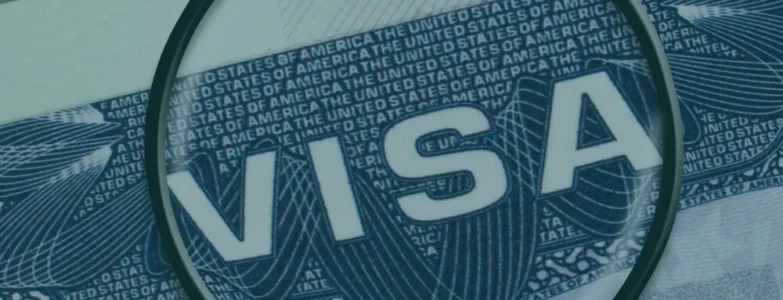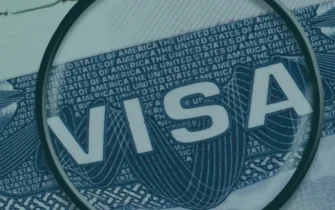By The Guillen Pujol CPAs Newsroom
The gateway to a U.S. business visa is not the embassy, not the handshake, not even the paperwork. It is the business plan. And at the core of that plan–quietly but decisively–is the work of a CPA
Consider two Australian designers. They came with a vision, yes, but what they brought to the U.S. wasn’t just art. It was arithmetic. And that arithmetic––precise, defensible, tax-compliant––was what earned them the E-2 Treaty Investor Visa. They didn’t just sell creativity. They proved sustainability. They didn’t just pitch a dream. They documented a plan.
And before any form was filed, they did one crucial thing that too many overlook: they hired a CPA.
The Visa Is Only the Finish Line
A visa application doesn’t begin when you speak to a consular officer. It begins long before that, in QuickBooks spreadsheets, in Delaware incorporation filings, in five-year forecasts reviewed line by line by someone who knows the IRS code in both languages: tax and narrative.
Whether it’s the E-2 Treaty Investor Visa (for those making a substantial investment in a U.S. enterprise), the L-1 (for transferring key staff from a foreign branch to a U.S. affiliate), the EB-5 (requiring a minimum $800,000 investment and job creation), or the elusive International Entrepreneur Parole (IEP), the government isn’t asking what you hope to build. It’s asking what you’ve already built—and whether it can stand.
A business must be real. Functional. Funded. Its bones—financials, governance, capitalization—must show integrity. Its projections must breathe plausibility. And its promise must not be “marginal,” to borrow the Department of Homeland Security’s own bureaucratic term. That bar is not moved by charisma. It’s moved by compliance.
What CPAs Do That Others Can’t
Immigration attorneys tell your story. CPAs provide the proof.
- Entity Structuring: Is it a C-Corp, an LLC, a limited partnership? The answer changes everything: taxes, liability, treaty eligibility, and your odds of visa approval.
- Investment Tracing: Funds must be lawful, verifiable, and “at risk.” A CPA connects the dots—cleanly—between bank statements, tax records, and capital deployment.
- Tax Foresight: Many visa holders unwittingly trigger U.S. tax residency. A CPA builds in protections—so entrepreneurs don’t find themselves exposed globally.
- Visa-Grade Business Plans: Five-year projections. Hiring timelines. Budget forecasts. These must be more than persuasive—they must be audit-proof.
The DIY Trap
Too many founders reverse the process. They file visa applications, then race to assemble a business behind it. That often leads to mistakes: wrong structure, weak financials, ambiguous fund sources. It’s not just inefficient. It’s disqualifying.
As one international tax advisor put it: “The visa isn’t won in the embassy, it’s won in the balance sheet.”
This is a Financial Argument–Don’t Do It Alone
What set the Australian designers apart wasn’t just design. It was discipline. They treated their visa not as a formality but as a financial dossier—one assembled with precision and signed off by a CPA who understood the stakes.
So if you’re contemplating a U.S. venture, start where the government starts: with the business. Partner with a CPA who sees what the visa officer sees. Let your structure speak before your story does.
Because in this process, your numbers are your narrative.
The team at Guillen Pujol CPAs has guided international founders through this journey before––and can help you do the same.
About Our Firm
At Guillen Pujol CPAs, our Miami firm specializes in high-income tax planning, international tax services, tax management, capital gains tax foreign property, outsourced bookkeeping and controller services, among others tax advisory solutions. Our team of experienced tax professionals has helped thousands of clients navigate complex regulations. This includes areas like Corporate Transparency Act compliance, ensuring compliance and optimal tax management strategies. As leading experts among Miami CPA firms, we are committed to providing exceptional tax consulting services tailored to your needs.
Take Action Now: Need professional tax guidance? Contact us today.
Planning Tomorrow, Together, with GPCPAs.
Trusted by Businesses Worldwide
Editor’s Note: This post is part of the ‘GPCPAs Info Hub,’ an initiative dedicated to empowering you with the knowledge and strategies needed to navigate the complexities of the U.S. tax system and financial strategies. Visit our Information Hub, a curated resource offering the latest in tax, economic, and business news, alongside actionable guidance on tax strategies, accounting, and business advisory—because Planning Tomorrow, Together starts here.
- AI, Tax Risk, and Professional Judgment: Why Automation Alone Can Increase IRS Exposure
- 2026 Tax Calendar: Your Guide to IRS Deadlines All Year
- How Realtors Can Reduce Their Taxable Income Through Smart Entity Selection and Advanced Tax Planning
- After the Shutdown: How IRS Cuts Continue Affecting Taxpayers
- IRS Tax Brackets for 2026: What Business Owners Need to Know











